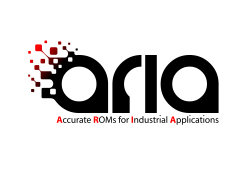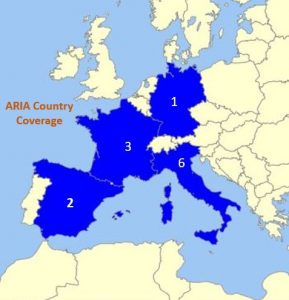ARIA aims at developing an array of mathematical methods for constructing predictive reduced-order models (ROMs) with guaranteed accuracy, robustness, reliability and efficiency for applications involving complex physical phenomena. New approaches to this challenge are proposed here with a focus on the Euler and Navier–Stokes equations of fluid flow, two of the most challenging continuum models with an extraordinary rich range of industrial applications. The mathematical modeling and solution of the Euler and Navier-Stokes equations is sometimes cited as the greatest challenge in continuum modeling of physical phenomena
Project facts
- ARIA is funded under the H2020-MSCA-2019 call and is part of the Marie Sklodowska-Curie Actions — Research and Innovation Staff Exchange (RISE) funding scheme.
- Grant agreement No: 872442
- Action full title: Accurate Roms for Industrial Applications
- Granting authority: Research Executive Agency
- Duration: 48 Months (12/2019 — 11/2024)
Project Coordinator: INRIA Bordeaux Sud-Ouest
Technical Coordinator: Angelo Iollo (University of Bordeaux and Inria Bordeaux Sud-Ouest)
- Optimad Engineering S.R.L, Italy
- Politecnico Di Torino, Italy
- Politecnico Di Milano, Italy
- Scuola Internazionale Superiore Di Studi Avanzati Di Trieste, Italy
- Esteco Spa, Italy
- Nurea, France
- Valorem SAS, France
- Volkswagen AG, Germany
- Virtual Mechanics SL, Spain
- Universidad de Sevilla, Spain
- CNAM, France
- The Department of Mathematics and Physics at UCSC, Italy
- University of Trieste, Italy
The associate partners:
- University of South Carolina, United States
- Board of Trustees of the Leland Standford Junior University, United States
- Virginia Polytechnic Institute and State University, United States




